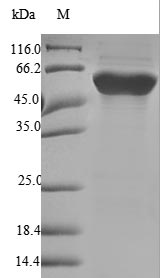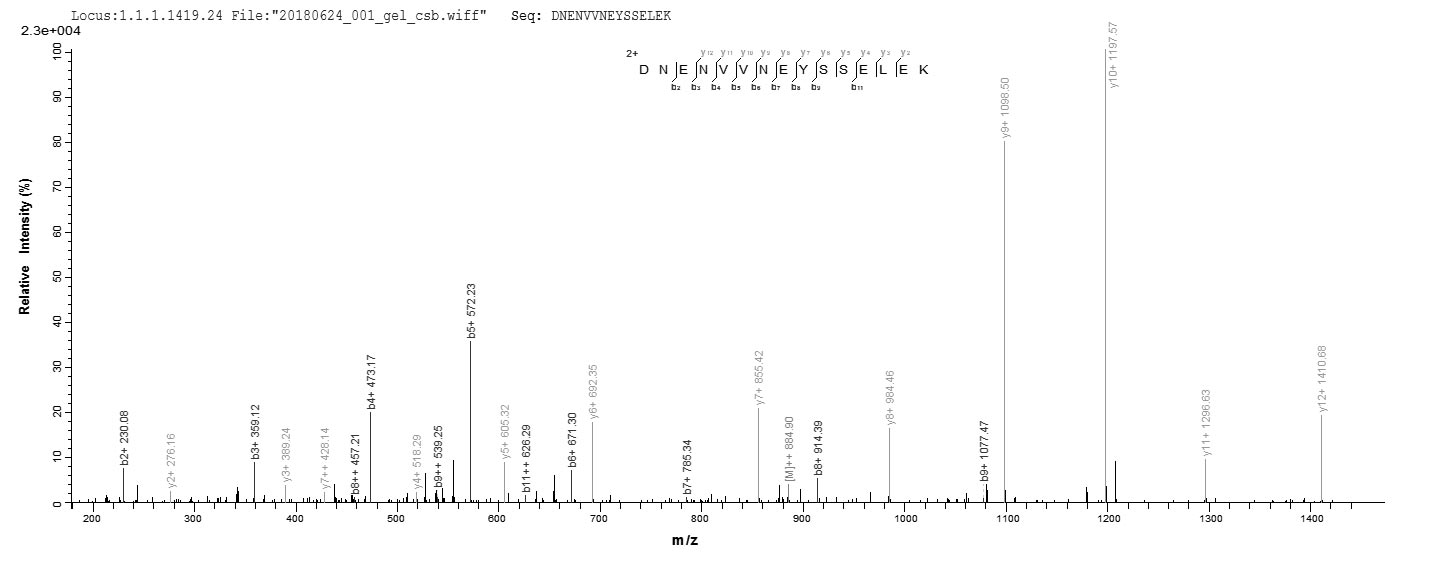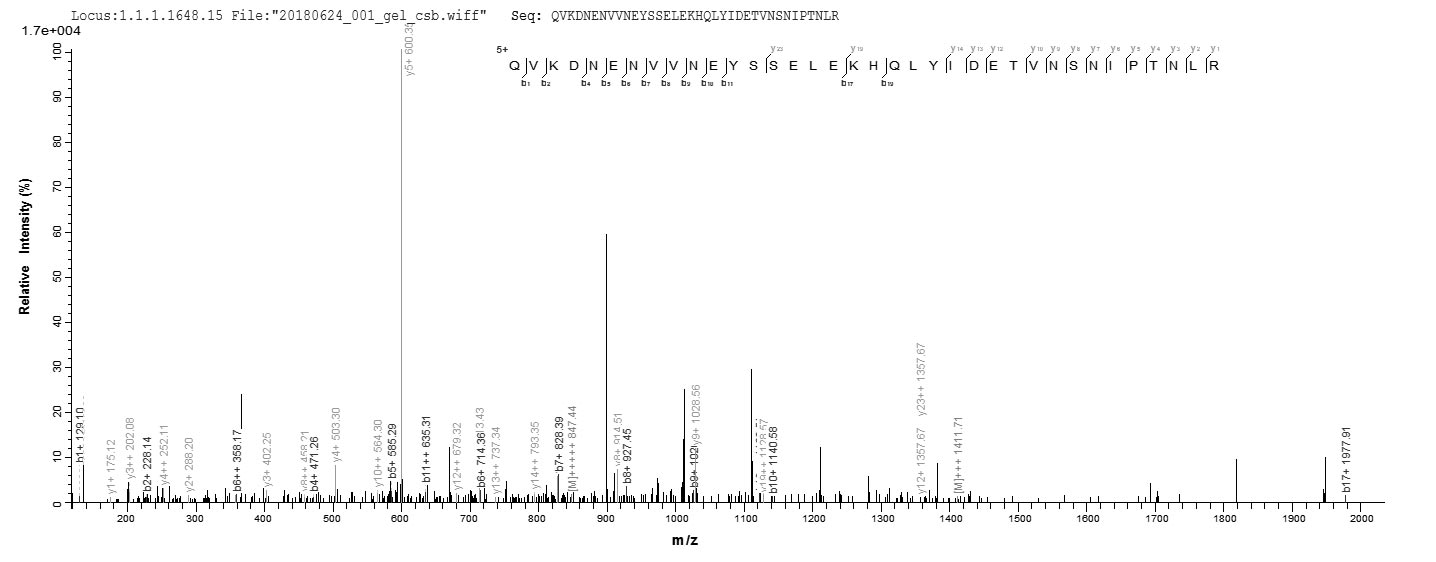CUSABIO transfected the expression vector which inserted the recombinant DNA into the E.coli, cultured the cells, and then induced the transcription and translation of the cloned vector. The N-terminal 6xHis tag sequence was appended to the gene coding for the E.coli of the human FGB protein to form the recombinant DNA. The recombinant human FGB was expressed as N-terminal 6xHis-tagged fusion. The purity of the protein is greater than 90% assayed by SDS-PAGE. It has an apparent molecular weight of approximately 60 kDa.
Fibrinogen is a large, complex, fibrous glycoprotein with three pairs of polypeptide chains linked together by 29 disulfide bonds. Fibrinogen is the major plasma protein coagulation factor. Low plasma fibrinogen concentrations are therefore associated with an increased risk of bleeding due to impaired primary and secondary haemostasis. Fibrinogen is a classical positive acute-phase reactant protein and is an independent predictor of coronary heart disease events. Plasma fibrinogen is an important component of the coagulation cascade, as well as a major determinant of blood viscosity and blood flow. Increasing evidence from epidemiological studies suggests that elevated plasma fibrinogen levels are associated with an increased risk of cardiovascular disorders, including ischaemic heart disease (IHD), stroke and other thromboembolism. This increase in plasma fibrinogen levels may promote a prothrombotic or hypercoagulable state, and may in part explain the risk of stroke and thromboembolism in conditions such as atrial fibrillation.








